- Details
- Hits: 2128
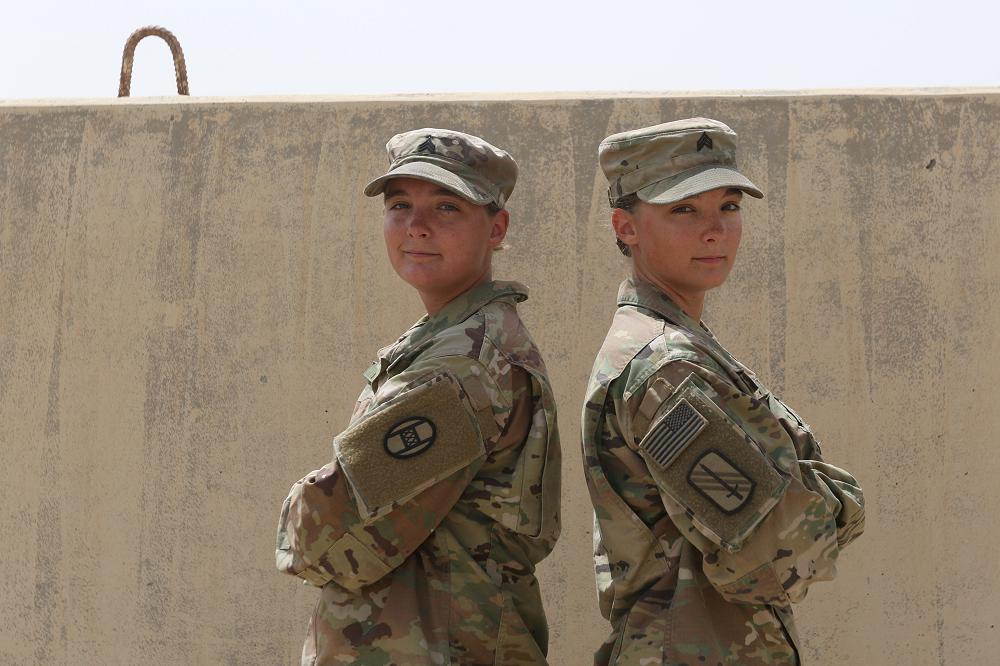 U.S. Army Sgt. Kaela Henasey and Sgt. Karissa Henasey deployed in the Central Command area of responsibility, April 10, 2020. The twin Soldiers are on their second deployment with the 30th Armored Brigade Combat Team, North Carolina National Guard.
U.S. Army Sgt. Kaela Henasey and Sgt. Karissa Henasey deployed in the Central Command area of responsibility, April 10, 2020. The twin Soldiers are on their second deployment with the 30th Armored Brigade Combat Team, North Carolina National Guard.
(Photo by Capt. Regina Corbin)
UNDISCLOSED LOCATION – By Capt. Regina Corbin - Deployments can be tough and the U.S. Army uses the “battle buddy” system to ensure Soldiers are supported and never alone. The 30th Armored Brigade Combat Team has two Soldiers who are not only battle buddies; they are twin sisters.
U.S. Army Sgt. Karissa Henasey and Sgt. Kaela Henasey are deployed together for the second time with the 30th Armored Brigade Combat Team to the Middle East in support of Operation Spartan Shield.
Read more: North Carolina Guard twin Soldiers double down on deployment
- Details
- Hits: 1814
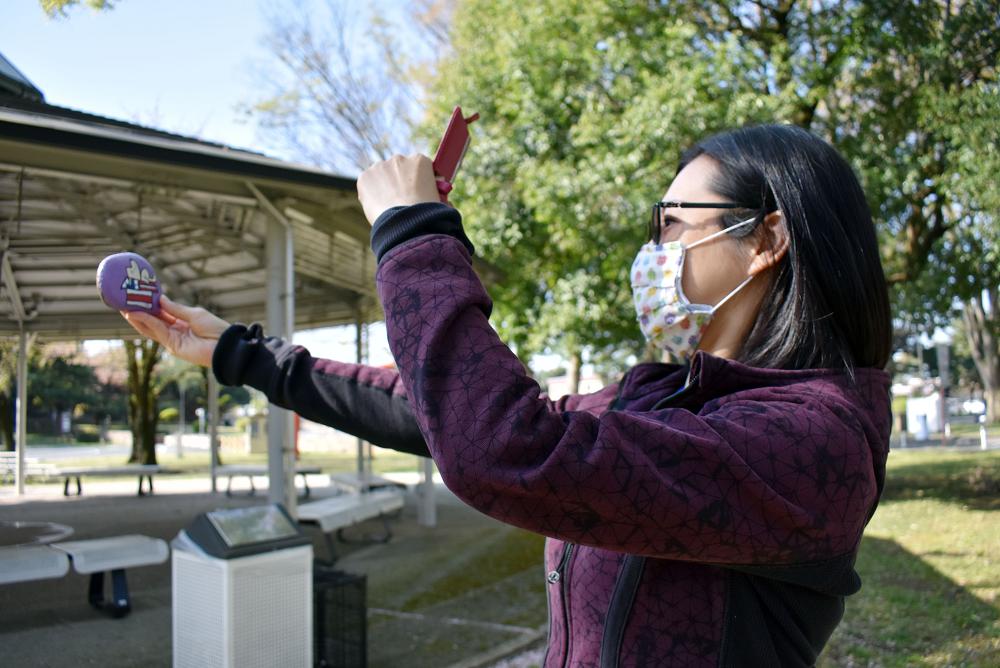 Sabrina Tsai, manager of the Camp Zama Arts and Crafts Center, takes a photo of a painted rock before hiding it for the center’s Easter Rock Hunt at Camp Zama, Japan, April 9. (Photo by Winifred Brown, U.S. Army Garrison Japan)
Sabrina Tsai, manager of the Camp Zama Arts and Crafts Center, takes a photo of a painted rock before hiding it for the center’s Easter Rock Hunt at Camp Zama, Japan, April 9. (Photo by Winifred Brown, U.S. Army Garrison Japan)
CAMP ZAMA, Japan (April 9, 2020) – Ever since Danielle Borja mentioned to her 4-year-old son Ta’si that there is a daily hunt for painted Easter rocks near their home, he wants to go every day.
“[He asks], ‘Mom, can we go for a walk? Can we go look for the rock eggs? Can we go?’” Borja said. “So he’s pretty excited, and it’s [his older siblings’] way of getting exercise since this whole pandemic situation is going on.”
Read more: Camp Zama Easter Rock Hunt a social distancing hit
- Details
- Hits: 1740
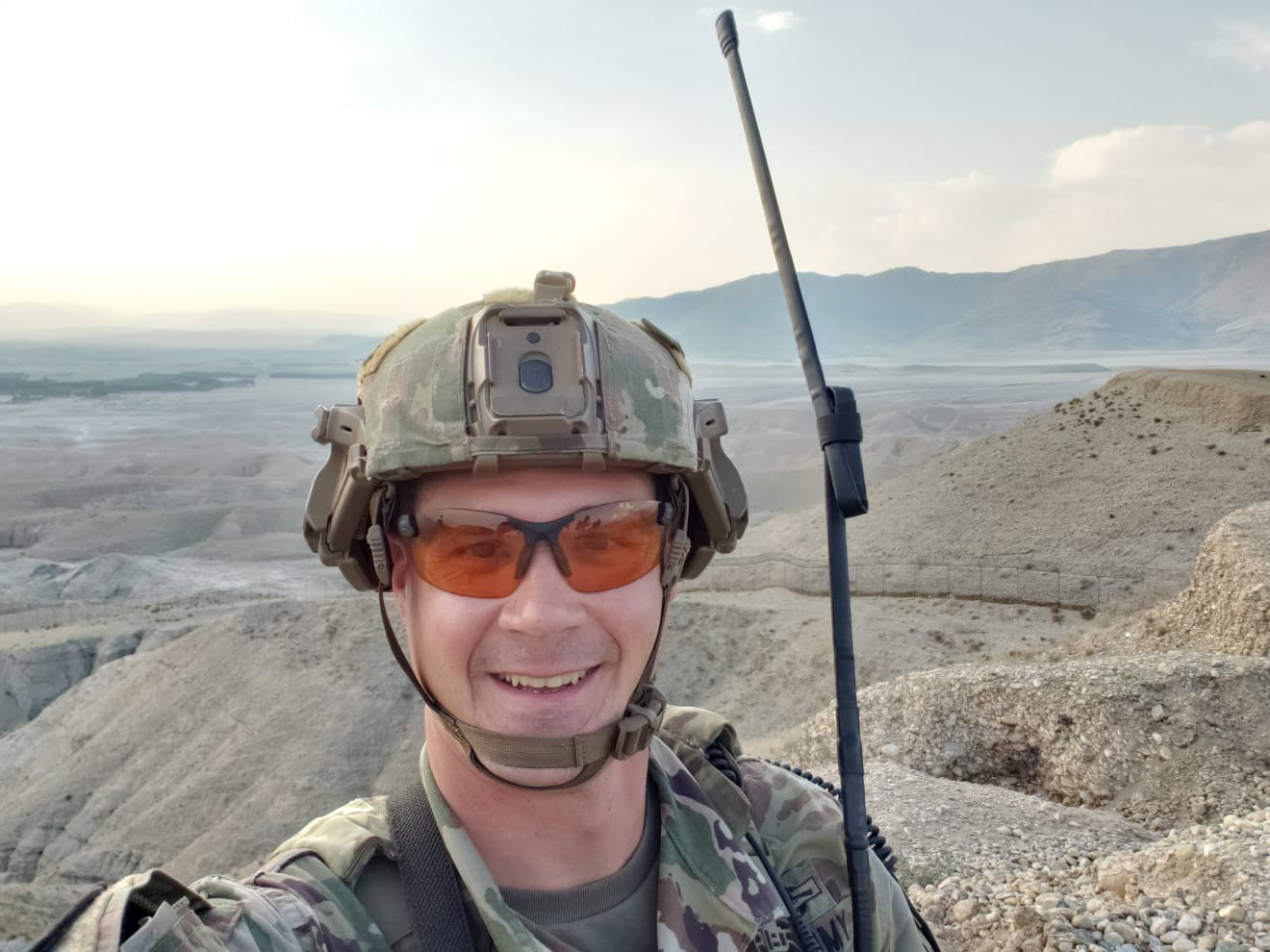 Staff Sgt. Benjamin Sieg, a quick reaction force squad leader in A Company, 1st Battalion, 128th Infantry, in Afghanistan. The 1st Battalion, 128th Infantry, deployed to Afghanistan in July 2019, and is acting as a “Guardian Angel” security element for the 3rd Security Force Assistance Brigade. (Photo by Courtesy)
Staff Sgt. Benjamin Sieg, a quick reaction force squad leader in A Company, 1st Battalion, 128th Infantry, in Afghanistan. The 1st Battalion, 128th Infantry, deployed to Afghanistan in July 2019, and is acting as a “Guardian Angel” security element for the 3rd Security Force Assistance Brigade. (Photo by Courtesy)
By Capt. Joe Trovato
Afghanistan, March, 2020 – The Soldiers of the Wisconsin Army National Guard’s 1st Battalion, 128th Infantry, remain hard at work in Afghanistan.
The nearly 400 “Red Arrow” Soldiers from the 32nd Infantry Brigade Combat Team mobilized for deployment in July and serve as a security element for the Army’s 3rd Security Force Assistance Brigade, or SFAB. The 128th integrated into the 3rd SFAB as its seventh battalion.
Known as “Guardian Angels,” the Red Arrow Soldiers are providing force protection for key leader engagements and training between advisers, other coalition forces, contractors and Afghan troops.
Read more: Red Arrow Soldiers in Afghanistan build on legacy
- Details
- Hits: 1707
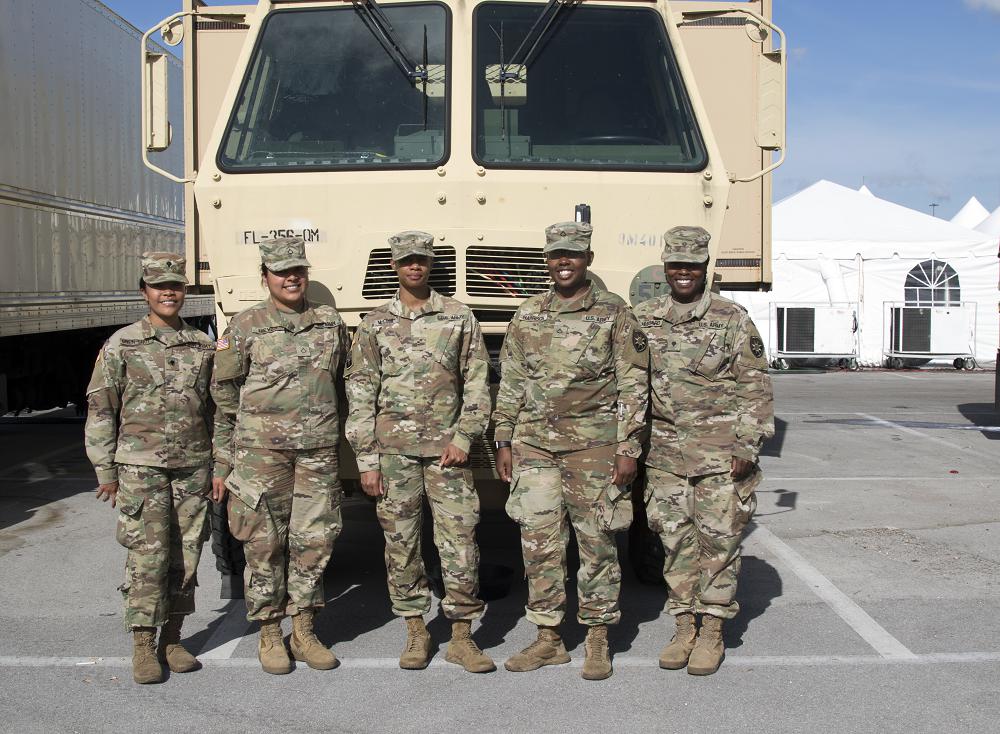
MIAMI GARDENS, Fla. – An all-female team with the Florida National Guard’s 356th Quartermaster (War Wagon) Company is managing logistics for a COVID-19 testing site at a local stadium.
“We empower each other as women and build one another up; being on an all-female team is unique and rewarding,” said Chief Warrant Officer Latania McCook, a supply systems technician. “We are honored to be here, and without this team, the site would not have the supplies on hand to complete the mission.”
Read more: War Wagon’s all-female team supports COVID-19 response
- Details
- Hits: 2095
Florida National Guard Soldiers in Orlando's Orange County community based testing site are ready for the mission presented to them.
Video by Pfc. Orion Oettel
Redistributed by permission of the Florida National Guard
- Details
- Hits: 2532
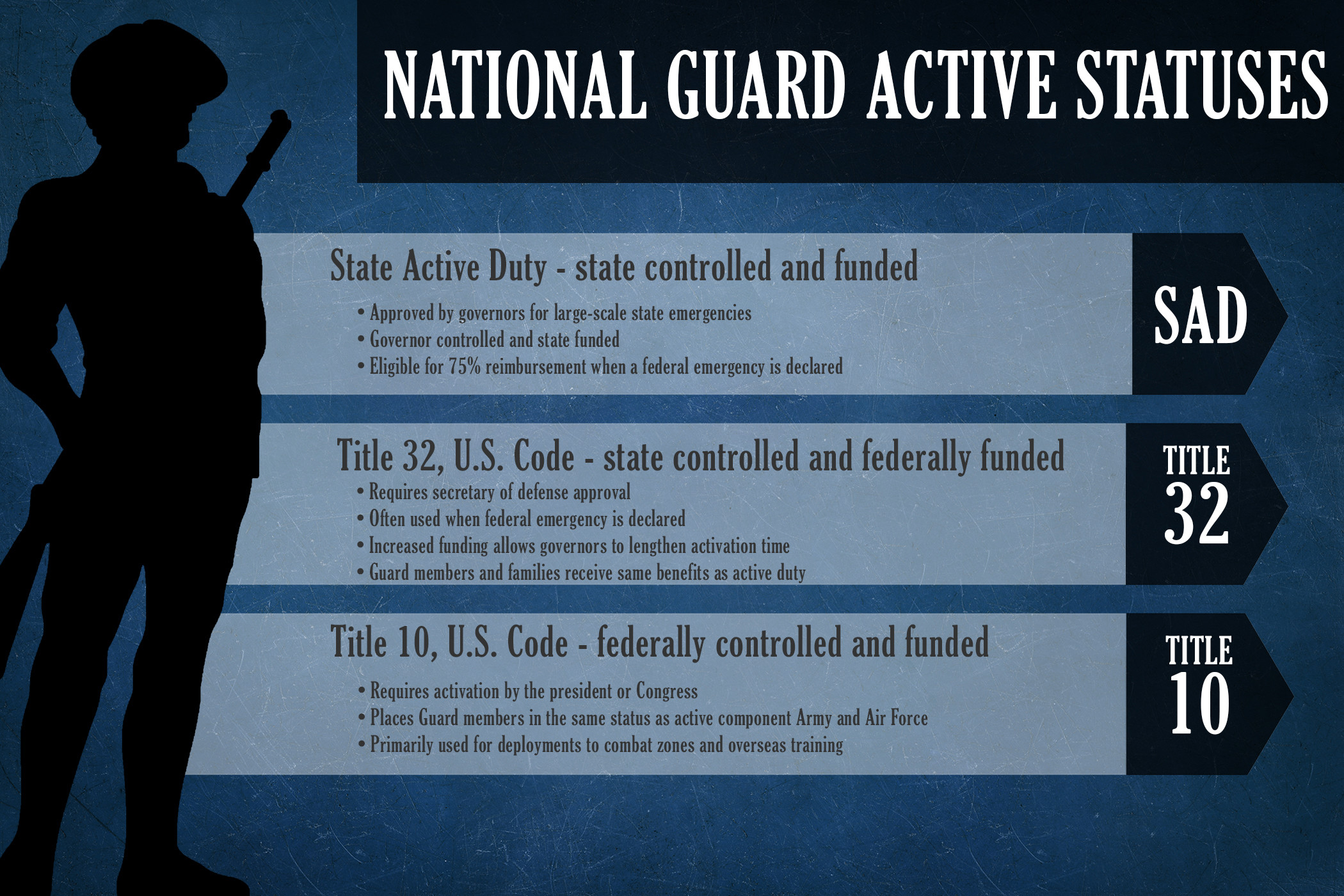
To date, a smaller number of Guard members have been activated under Title 32, 502 F, United States Code, or state activation that is federally funded. In this duty status, the primary change is the funding source. Guard members remain under the command and control of their governor. However, this type of activation requires approval by the secretary of defense and is generally used when a federal emergency is declared. Guard members and their families are also entitled to the same benefits as the active component.
Read more: Guard dual status allows flexibility, rapid COVID-19 response
- National Guard Ramping Up Wuhan Virus COVID-19 Response
- COVID-19 (aka Coronavirus 19, Wuhan Virus) DOW Stop Movement Order Issued
- U.S. Forces Honing Arctic Warfare Skills in Norway's High North in Exercise Cold Response 20
- A day in the life of an A-10 fighter pilot
- Here’s Why Army Helicopters Have Native American Names
- Christmas Cookie Catch Up – 7 more VA Medical Centers Got Christmas and Holiday Cookies!


